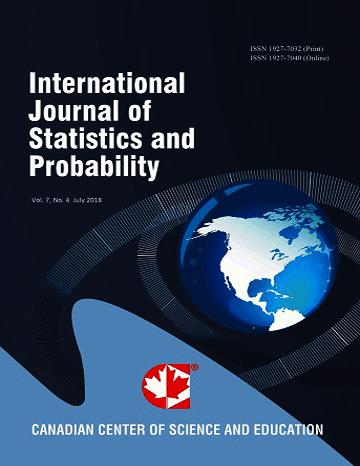Partitioning Problems Arising From Independent Shifted-Geometric and Exponential Samples With Unequal Intensities
- Thierry E. Huillet
Abstract
Two problems dealing with the random skewed splitting of some population into J different types are considered.
In a first discrete setup, the sizes of the sub-populations come from independent shifted-geometric with unequal characteristics. Various J → ∞ asymptotics of the induced occupancies are investigated: the total population size, the number of unfilled types, the index of consecutive filled types, the maximum number of individuals in some state and the index of the type(s) achieving this maximum. Equivalently, this problem is amenable to the classical one of assigning indistinguishable particles (Bosons) at J sites, in some random allocation problem.
In a second parallel setup in the continuum, we consider a large population of say J ‘stars’, the intensities of which have independent exponential distributions with unequal inverse temperatures. Stars are being observed only if their intensities exceed some threshold value. Depending on the choice of the inverse temperatures, we investigate the energy partitioning among stars, the total energy emitted by the observed stars, the number of the observable stars and the energy and index of the star emitting the most.
- Full Text:
 PDF
PDF
- DOI:10.5539/ijsp.v8n6p31
Index
- ACNP
- Aerospace Database
- BASE (Bielefeld Academic Search Engine)
- CNKI Scholar
- DTU Library
- Elektronische Zeitschriftenbibliothek (EZB)
- EuroPub Database
- Excellence in Research for Australia (ERA)
- Google Scholar
- Harvard Library
- Infotrieve
- JournalTOCs
- Mir@bel
- Open policy finder
- ResearchGate
- Technische Informationsbibliothek (TIB)
- UCR Library
- WorldCat
Contact
- Wendy SmithEditorial Assistant
- ijsp@ccsenet.org
